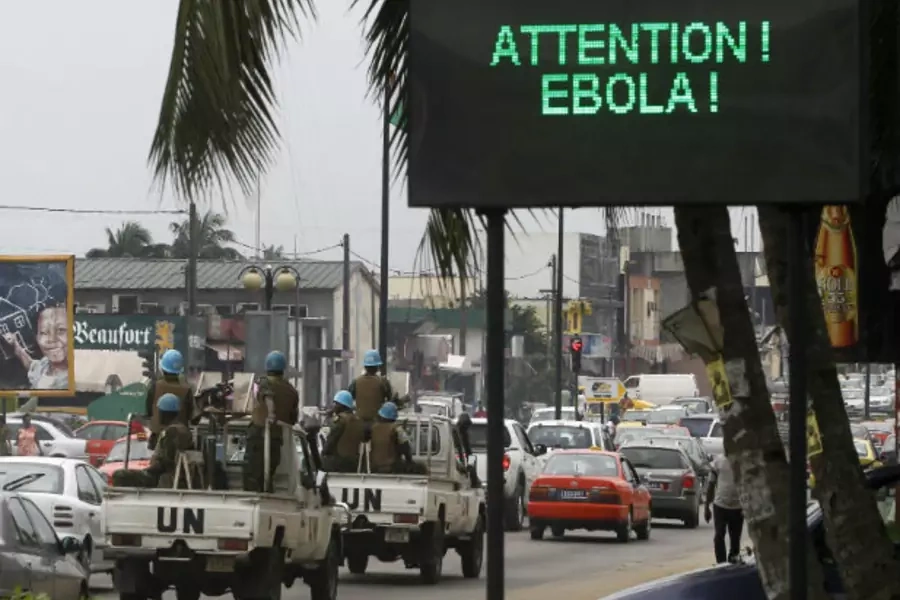More on:
Ebola is fearful. Its symptoms include raging fever, bleeding from orifices (including the eyes and ears), diarrhea, and vomiting. The mortality rate is high. Caregivers move about in space suits. Necessary care for the sick and proper medical practices, including quarantine and the burial methods, are contrary to the strong family and community-centered values of traditional West African society.
Attacks on medical centers, notably in Monrovia, Liberia, over the past weekend reflect popular rage and confusion about the nature of the disease. Some West Africans share pre-modern belief systems in which evil is the result of witchcraft. For them, the quarantine of the sick and the prohibition of traditional burial practices (such as washing the corpse) are anathema. As Ebola is often regarded as a death sentence victims and their families will often hide the disease and do all that they can to avoid medical centers.
But, Ebola is not invariably fatal. In some places, the recovery rate can be as high as a third of the victims. It is true that there is no pharmaceutical that can defeat the disease. But, with active medical intervention, the body can sometimes defeat the virus. These interventions include treatments such as rehydration, antibiotics to counter other infections, and even blood transfusions can help.
There is nothing new about popular fear and panic in the face of a horrific disease that is poorly understood. For example, in the early years of the HIV/AIDS pandemic many Americans were convinced that the disease could be spread through toilet seats.
This reality highlights the need for public education campaigns. That requires agencies which enjoy public confidence. But, in countries such as Sierra Leone or Liberia that are emerging from civil war, governments are often viewed with suspicion and sometimes fear. So, an effective public education campaign is not so simple. It involves identifying local leaders at the grass roots who command public confidence.Who those leaders are will vary from place to place. "One size fits all" does not work. MSF (Medecins sans Frontiers) has done sterling work here, as in so many other areas in the fight against Ebola. But, it is a relatively small non-governmental organization (NGO) largely funded by donations. Clearly the public education effort needs international support. Could not the Obama administration help?
More on:
 Online Store
Online Store
